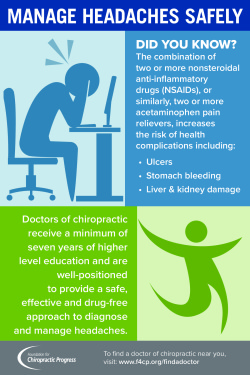The Role Of Nourishment In Pain In The Back Monitoring: Foods To Eat And Avoid
The Role Of Nourishment In Pain In The Back Monitoring: Foods To Eat And Avoid
Blog Article
Content Writer-Hsu Wheeler
When it involves handling your pain in the back, the food choices you make can substantially influence how you feel on a daily basis. Picture being able to reduce your pain merely by adjusting what you eat. By comprehending the role of nourishment in neck and back pain monitoring and understanding which foods to integrate or avoid, you can take positive steps towards a healthier and more comfy way of life. The connection between nourishment and back wellness is extra profound than you may realize-- let's discover just how particular foods can either calm or intensify your pain in the back.
Relevance of Nourishment in Back Pain
Nourishment plays an essential duty in taking care of pain in the back. Your diet regimen can considerably affect swelling degrees and overall pain levels in your back. Taking in a balanced diet plan rich in nutrients like vitamins D and K, calcium, magnesium, and omega-3 fats can help in reducing swelling and enhance bones, which are crucial for back wellness.
Furthermore, preserving a healthy and balanced weight through proper nutrition can minimize tension on your spine, reducing the danger of pain in the back.
In addition, specific nutrients like anti-oxidants located in fruits and vegetables can assist battle oxidative stress and advertise healing in the body, including the back muscular tissues and back.
On the other hand, consuming excessive amounts of processed foods, sugary beverages, and unhealthy fats can contribute to inflammation and weight gain, aggravating pain in the back.
Foods to Consume for Back Health
To support a healthy and balanced back, integrating nutrient-rich foods into your day-to-day meals is vital. Including foods high in antioxidants like berries, spinach, and kale can help in reducing swelling in your back, relieving discomfort and pain. Omega-3 fats located in fatty fish such as salmon and mackerel have anti-inflammatory buildings that can profit your back wellness.
In addition, taking in nuts and seeds like almonds, walnuts, and chia seeds offers vital nutrients like magnesium and vitamin E, which sustain muscle function and lower oxidative anxiety. Including lean proteins such as chicken, turkey, and tofu can aid in muscle repair work and upkeep, promoting a solid back.
Do not fail to remember to include milk or fortified plant-based alternatives for calcium to sustain bone health and wellness. Finally, https://click.ro/vedete/vedete-romanesti/simona-gherghe-povesti-de-cosmar-din-izolare-411351.html with lots of water to maintain your spinal discs hydrated and operating ideally. By including acupuncture manhattan nyc -dense foods in your diet regimen, you can nurture your back and support overall spinal wellness.
Foods to Avoid for Neck And Back Pain
Choose preventing processed foods high in added sugars and trans fats when seeking remedy for neck and back pain. These kinds of foods can add to swelling in the body, which may worsen neck and back pain. Say no to sweet snacks sweet, breads, and sugary drinks, along with junk food things like hamburgers, french fries, and fried chicken that are often loaded with trans fats.
Furthermore, steer clear of foods consisting of high degrees of polished carbs, such as white bread, pasta, and pastries, as they can surge blood sugar levels and potentially intensify inflammation in the body.
It's additionally a good idea to limit your intake of foods high in hydrogenated fats, like red meat and full-fat dairy products, as they can contribute to swelling. Processed foods like delicatessens meats, chips, and packaged treats are usually high in saturated fats and ought to be consumed in small amounts.
Final thought
To conclude, taking notice of your diet plan and making smart food selections can have a significant effect on taking care of pain in the back. By integrating nutrient-rich foods like berries, fatty fish, nuts, and lean proteins, and staying clear of refined and sugary products, you can help reduce swelling and support overall back health. Keep in mind, what you consume plays a crucial role in just how you really feel, so see to it to prioritize your nourishment for a healthier back.
